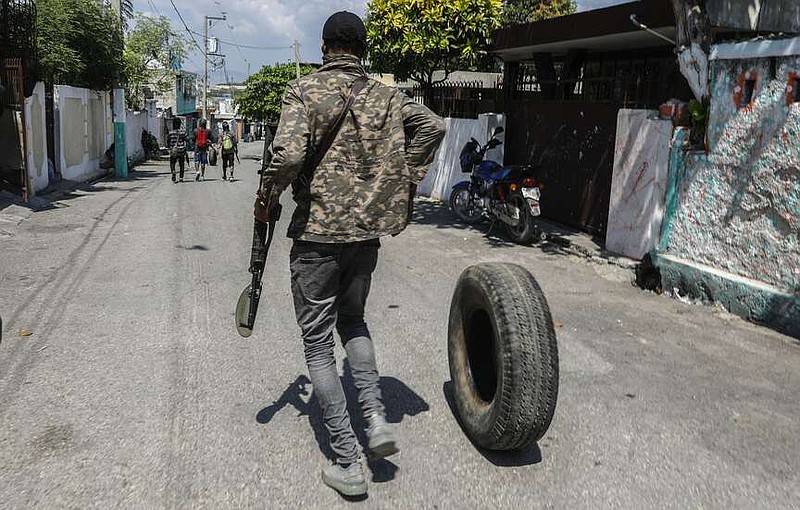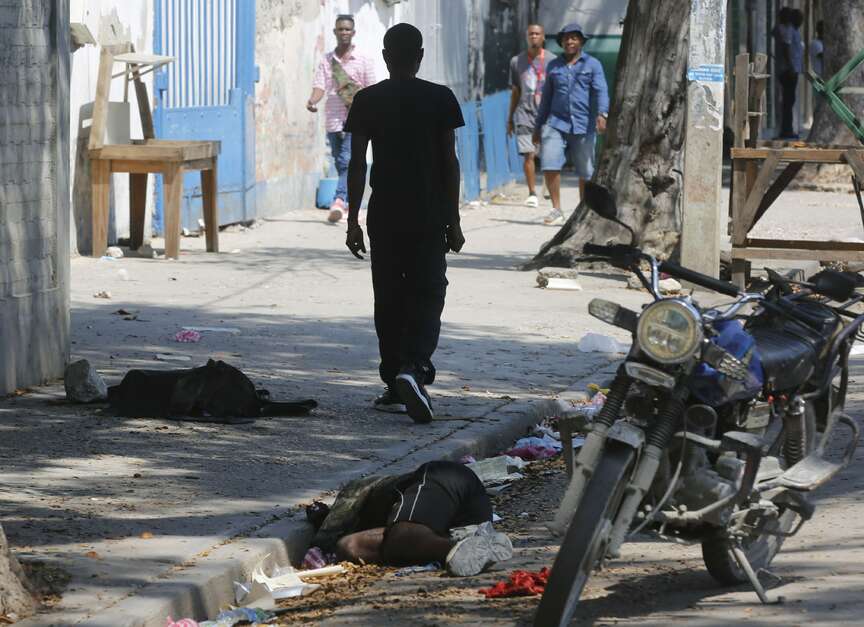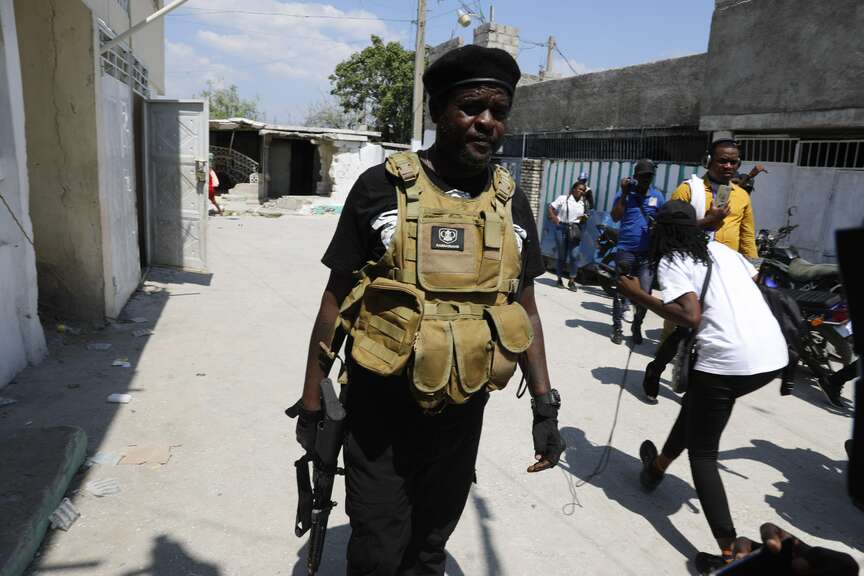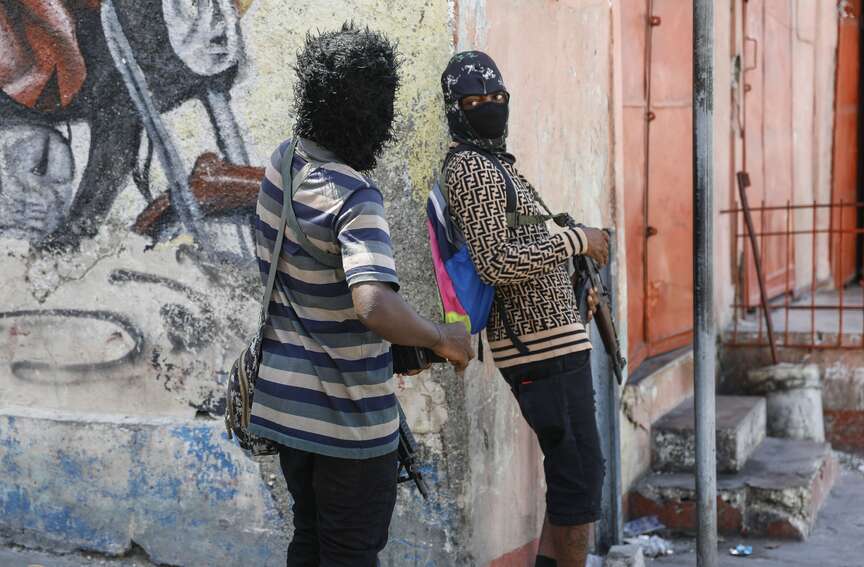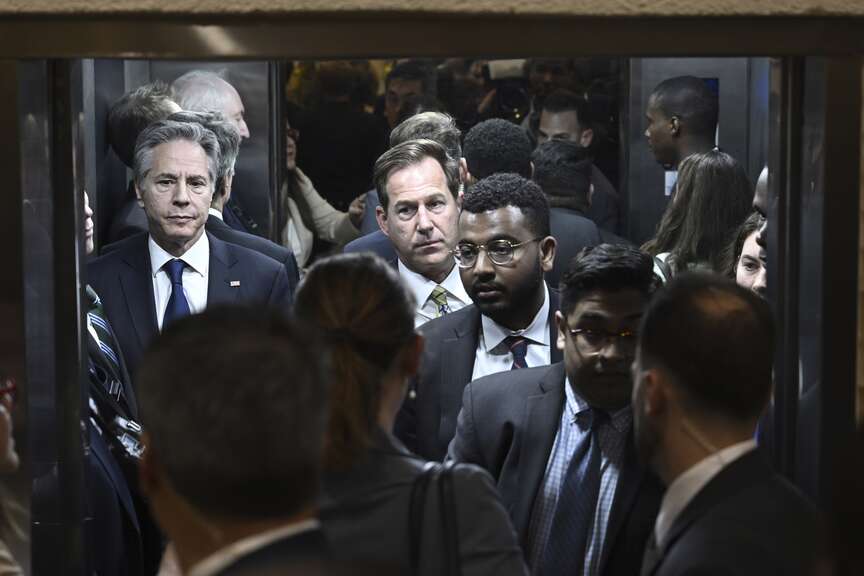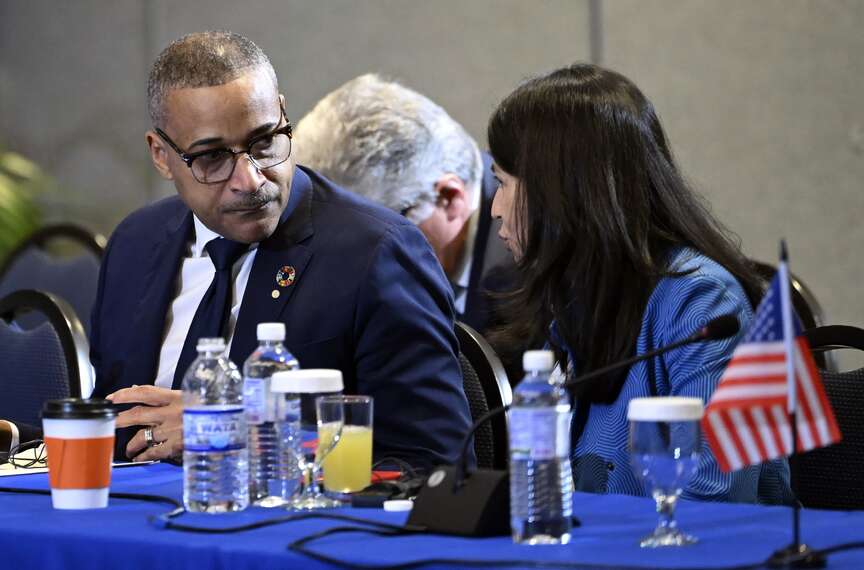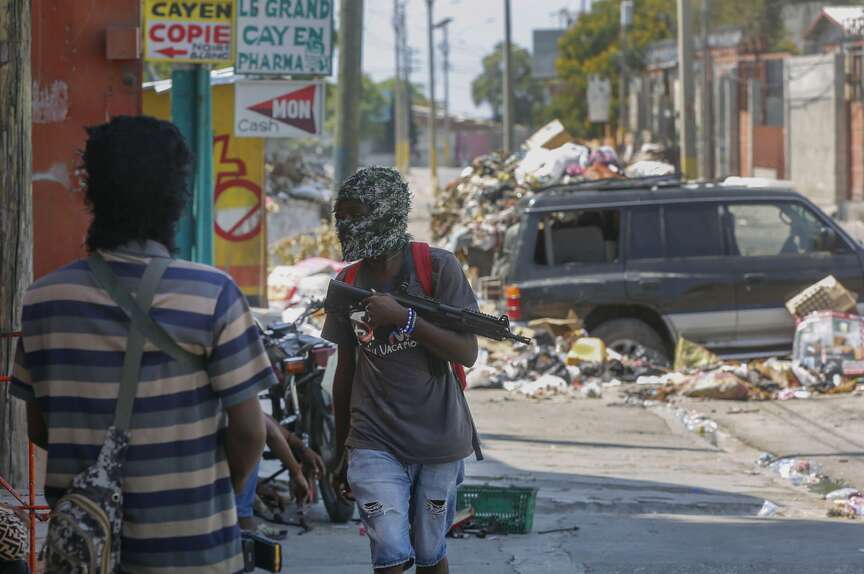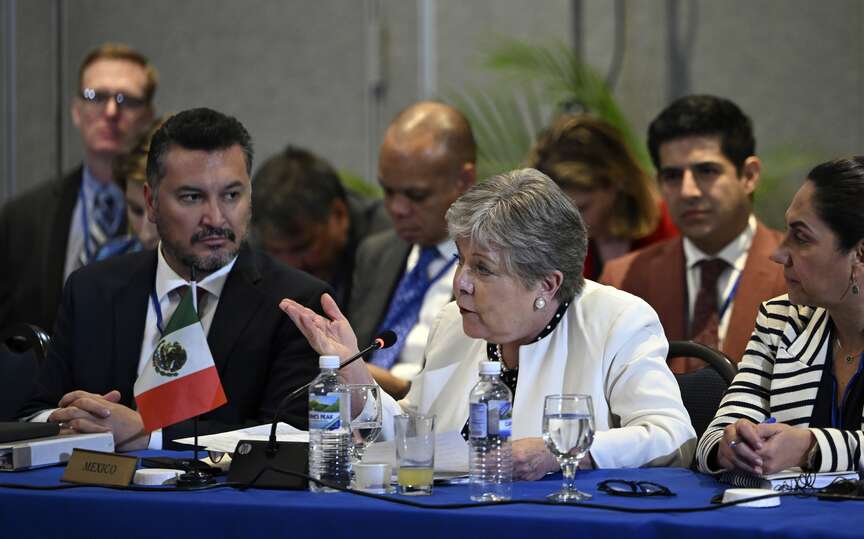PORT-AU-PRINCE, Haiti -- Politicians across Haiti are scrambling for power after Prime Minister Ariel Henry announced Tuesday that he would resign once a transitional presidential council is created.
But elbowing their way into the race are powerful gangs that control 80% of Haiti's capital and demand a say in the future of the troubled country under siege.
No one mentioned the armed groups as Caribbean leaders congratulated themselves late Monday for setting Haiti on a new political path, and experts warned that nothing will change unless gangs become part of the conversation.
"Even if you have a different kind of government, the reality is that you need to talk to the gangs," said Robert Fatton, a Haitian politics expert at the University of Virginia, noting that gangs largely control the capital. "If they have that supremacy and there is no countervailing force, it's no longer a question if you want them at the table. They may just take the table."
Gangs have deep ties to Haiti's political and economic elite, but they have become more independent, financing their operations with kidnapping ransoms to buy smuggled weapons, including belt-fed machine guns and .50-caliber sniper rifles that allow them to overpower underfunded police.
More than 200 gangs are estimated to operate around Haiti, mostly in Port-au-Prince and surrounding areas. More than 20 of them are based in the capital and rally around two main coalitions: G9 Family and Allies led by Jimmy Chérizier, a former elite police officer known as "Barbecue"; and G-Pep, led by Gabriel Jean-Pierre, who is allied with Johnson André, leader of the 5 Seconds gang and known as "Izo."
Shortly before Prime Minister Ariel Henry said he would resign and Caribbean officials announced the creation of a transitional council, Chérizier held an impromptu news conference and rejected any solution led and supported by the international community.
"It's the Haitian people who know what they're going through. It's the Haitian people who are going to take destiny into their own hands. Haitian people will choose who will govern them," Chérizier said.
As the upheaval continues, Henry has been unable to enter Haiti because the violence forced the closure of its airports. He arrived a week ago in Puerto Rico, where he announced his resignation in a recorded statement.
"The government that I'm running cannot remain insensitive in front of this situation. There is no sacrifice that is too big for our country," Henry said Tuesday. "The government I'm running will remove itself immediately after the installation of the council."
Chérizier has yet to react to the looming resignation, which he has long sought as he claimed responsibility for coordinated attacks on critical government targets that began Feb. 29 while the prime minister was in Kenya pushing for the U.N.-backed deployment of a police force to help fight gangs.
On Tuesday, a Kenyan official said the planned deployment was on hold and that authorities would await the installation of a new constitutional authority in Haiti before making further decisions.
It's unclear whether Chérizier, considered Haiti's most powerful gang leader, and other armed groups will accept the plan to create a transitional council.
The council will be responsible for appointing an interim prime minister and the new leader will work with the council to select a council of ministers.
It would have seven voting members and two nonvoting ones. Those with votes include the Pitit Desalin party, run by former senator and presidential candidate Moïse Jean-Charles, who is now an ally of Guy Philippe, a former rebel leader who led a successful 2004 coup.
Also with a vote is the EDE party of former Prime Minister Charles Joseph; the Fanmi Lavalas party; the coalition led by Henry; the Montana Accord group; and members of the private sector.
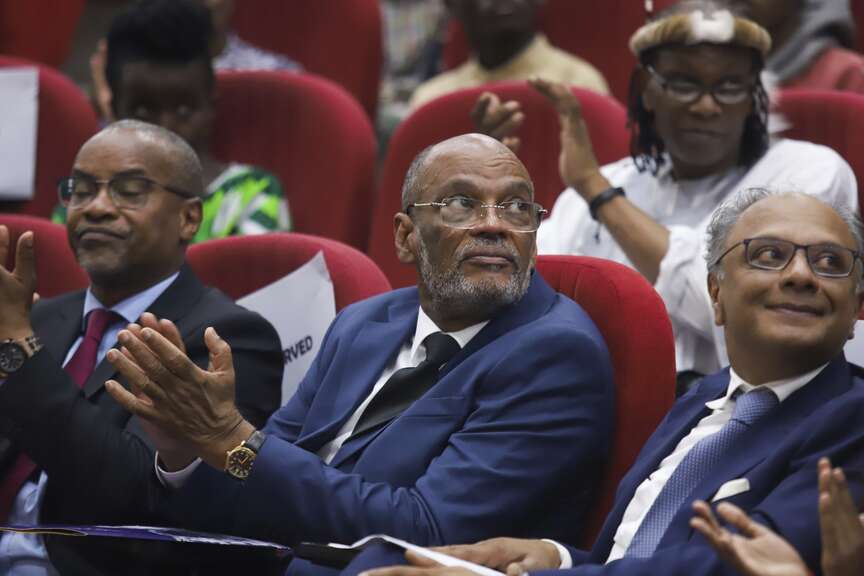 FILE - Haiti's Prime Minister Ariel Henry attends a public lecture at the United States International University in Nairobi, Kenya, March 1, 2024. The prime minister had traveled to Kenya to push for the U.N.-backed deployment of a police force from the East African country to fight gangs in Haiti. Henry, who is facing calls to resign or form a transitional council, remains unable to return home. (AP Photo/Andrew Kasuku, File)
FILE - Haiti's Prime Minister Ariel Henry attends a public lecture at the United States International University in Nairobi, Kenya, March 1, 2024. The prime minister had traveled to Kenya to push for the U.N.-backed deployment of a police force from the East African country to fight gangs in Haiti. Henry, who is facing calls to resign or form a transitional council, remains unable to return home. (AP Photo/Andrew Kasuku, File)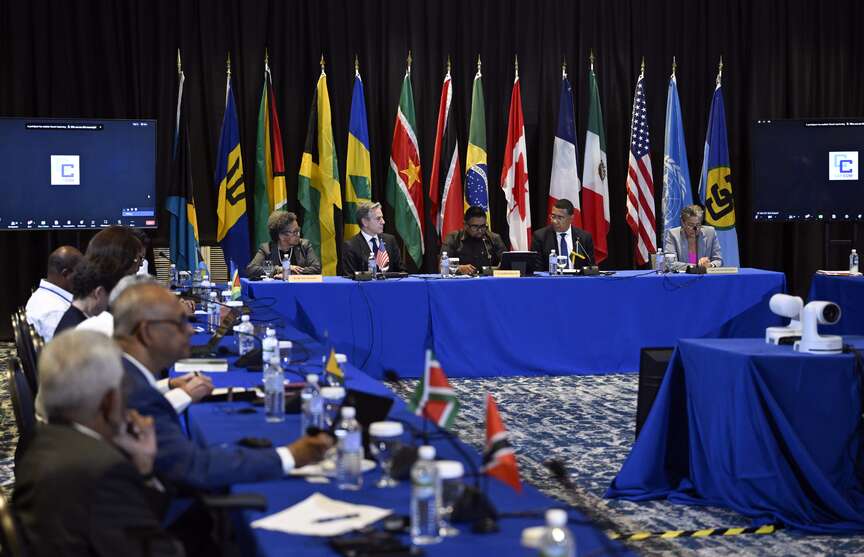 From left, Barbados Prime Minister Mia Mottley, U.S. Secretary of State Antony Blinken, Guyana's President Irfaan Ali and Jamaica's Prime Minister Andrew Holness attend an emergency meeting on Haiti at the Conference of Heads of Government of the Caribbean Community (CARICOM) in Kingston, Jamaica, on Monday, March 11, 2024. (Andrew Caballero-Reynolds, Pool via AP)
From left, Barbados Prime Minister Mia Mottley, U.S. Secretary of State Antony Blinken, Guyana's President Irfaan Ali and Jamaica's Prime Minister Andrew Holness attend an emergency meeting on Haiti at the Conference of Heads of Government of the Caribbean Community (CARICOM) in Kingston, Jamaica, on Monday, March 11, 2024. (Andrew Caballero-Reynolds, Pool via AP)
